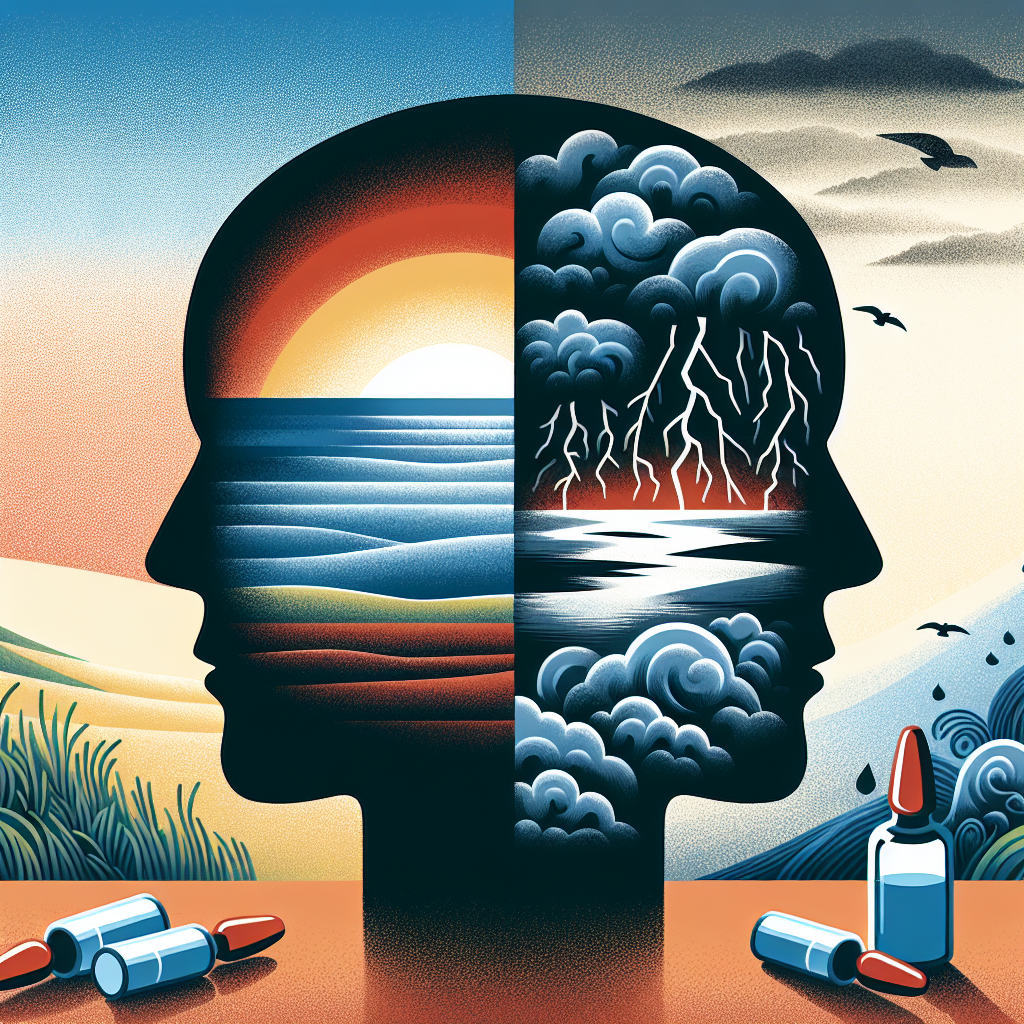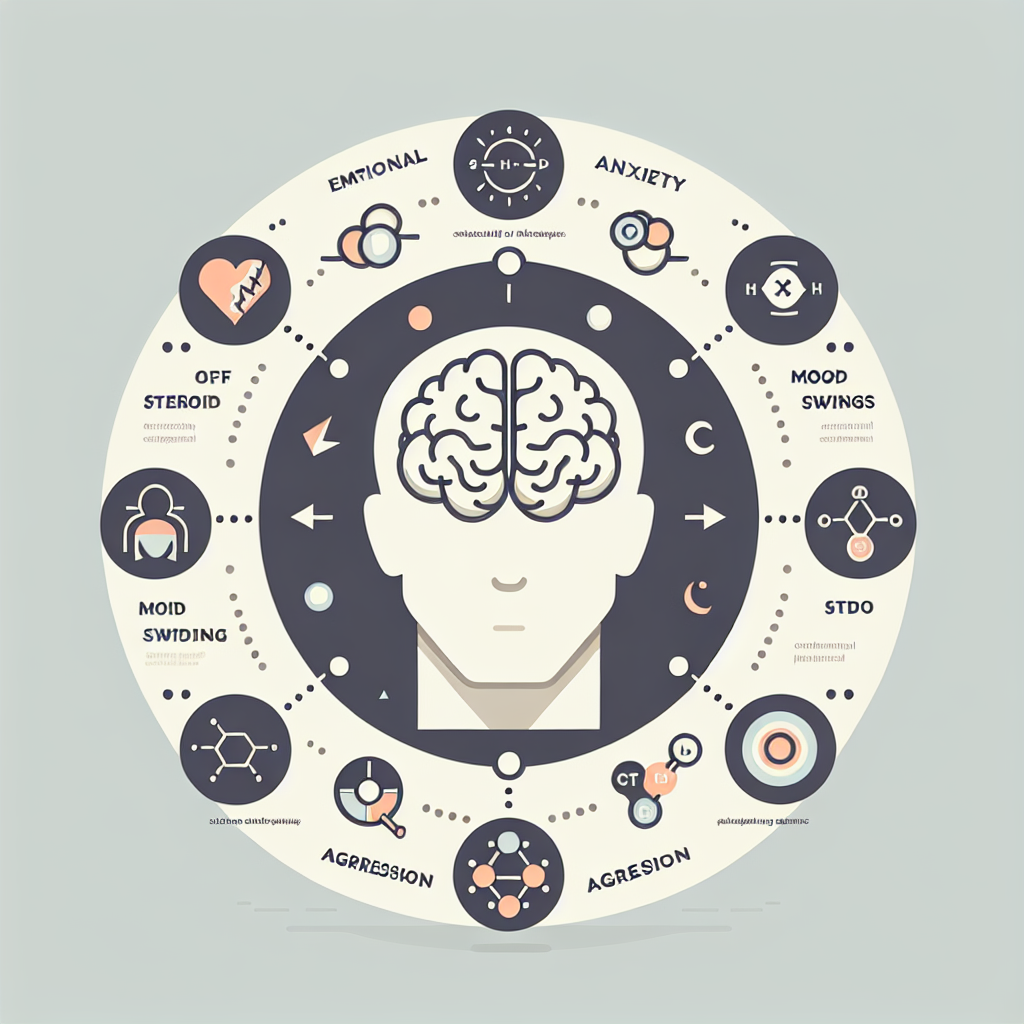-
Table of Contents

“Steroid abuse: Fueling strength, shattering minds.”
Introduction
Steroid abuse, particularly the misuse of anabolic-androgenic steroids (AAS), has significant and multifaceted effects on mental health. These synthetic substances, designed to mimic the effects of the male hormone testosterone, are often used to enhance physical performance and appearance. However, their non-medical use can lead to a range of psychological issues. Individuals abusing steroids may experience mood swings, aggression, and irritability, commonly referred to as “roid rage.” Long-term abuse can result in severe mental health disorders such as depression, anxiety, and psychosis. Additionally, dependency on steroids can lead to withdrawal symptoms, further exacerbating mental health challenges. Understanding these effects is crucial for developing effective prevention and treatment strategies for those affected by steroid abuse.
The Psychological Consequences of Steroid Abuse: Anxiety, Depression, and Aggression
Steroid abuse, often associated with athletes and bodybuilders seeking enhanced performance and physical appearance, has far-reaching consequences that extend beyond the physical realm. While the physical side effects of steroid abuse, such as liver damage and cardiovascular issues, are well-documented, the psychological consequences are equally alarming and deserve attention. Understanding the mental health implications of steroid abuse is crucial for fostering a more informed and compassionate approach to addressing this issue.
One of the most significant psychological effects of steroid abuse is anxiety. Steroids can alter the brain’s chemistry, leading to heightened levels of stress and anxiety. Users may experience constant worry, panic attacks, and an overwhelming sense of unease. This anxiety can be debilitating, affecting daily functioning and overall quality of life. The pressure to maintain an enhanced physique or performance level can exacerbate these feelings, creating a vicious cycle that is difficult to break.
In addition to anxiety, depression is another common mental health issue associated with steroid abuse. The initial euphoria and increased confidence that steroids may provide can quickly give way to feelings of sadness, hopelessness, and despair. This emotional rollercoaster is partly due to the disruption of natural hormone levels in the body. When steroid use is discontinued, the body struggles to regain its hormonal balance, often leading to a significant drop in mood and energy levels. This post-steroid depression can be severe and may require professional intervention to manage effectively.
Aggression, often referred to as “roid rage,” is another troubling psychological consequence of steroid abuse. Steroids can increase irritability and aggression, leading to violent outbursts and impulsive behavior. This heightened aggression can strain relationships, result in legal issues, and create a hostile environment for both the user and those around them. The impact of this aggression extends beyond the individual, affecting families, communities, and society at large.
Despite these daunting challenges, it is important to recognize that recovery and healing are possible. Raising awareness about the psychological effects of steroid abuse is a critical step in encouraging individuals to seek help. Support from mental health professionals, such as therapists and counselors, can provide the necessary tools and strategies to manage anxiety, depression, and aggression. Additionally, support groups and peer networks can offer a sense of community and understanding, helping individuals feel less isolated in their struggles.
Education and prevention efforts are also key components in addressing steroid abuse. By promoting healthy, natural approaches to fitness and performance, we can reduce the allure of steroids and their perceived benefits. Encouraging open conversations about the risks and consequences of steroid use can empower individuals to make informed decisions and seek healthier alternatives.
In conclusion, the psychological consequences of steroid abuse, including anxiety, depression, and aggression, are profound and multifaceted. These mental health issues not only affect the individual but also have a ripple effect on their relationships and communities. By fostering awareness, providing support, and promoting education, we can inspire a more compassionate and proactive approach to addressing steroid abuse and its impact on mental health. Through collective efforts, we can create a healthier, more informed society that prioritizes well-being over temporary gains.
Steroid Abuse and Its Impact on Cognitive Function and Emotional Stability
Steroid abuse, often associated with athletes and bodybuilders seeking enhanced performance and physical appearance, has far-reaching consequences that extend beyond the physical realm. While the physical side effects of steroid abuse, such as liver damage, cardiovascular issues, and hormonal imbalances, are well-documented, the impact on mental health is equally significant and warrants closer examination. Understanding the cognitive and emotional repercussions of steroid abuse can inspire individuals to make informed decisions about their health and well-being.
One of the most concerning effects of steroid abuse on mental health is its impact on cognitive function. Steroids can alter brain chemistry, leading to changes in mood, behavior, and cognitive abilities. Users may experience difficulties with memory, attention, and problem-solving skills. These cognitive impairments can affect daily functioning, academic performance, and professional productivity. Over time, the brain’s ability to process information and make sound decisions can be compromised, leading to a decline in overall mental acuity.
In addition to cognitive impairments, steroid abuse can significantly affect emotional stability. Users often report experiencing mood swings, irritability, and aggression, commonly referred to as “roid rage.” These emotional fluctuations can strain relationships with family, friends, and colleagues, creating a cycle of social isolation and emotional distress. The heightened aggression and irritability can also lead to impulsive and risky behaviors, further exacerbating the negative impact on one’s mental health and overall quality of life.
Moreover, steroid abuse has been linked to the development of psychiatric disorders. Depression and anxiety are common among steroid users, with some individuals experiencing severe depressive episodes and panic attacks. The disruption of the brain’s natural chemical balance can lead to feelings of hopelessness, worthlessness, and an inability to experience pleasure. These symptoms can be particularly challenging to manage, as they often persist even after discontinuing steroid use. The risk of developing psychiatric disorders underscores the importance of addressing steroid abuse as a serious mental health concern.
Another critical aspect to consider is the potential for addiction. Steroid abuse can lead to psychological dependence, where individuals feel compelled to continue using steroids despite the negative consequences. This dependence can be driven by a desire to maintain physical appearance, enhance performance, or cope with underlying emotional issues. The cycle of addiction can be difficult to break, as users may experience withdrawal symptoms such as fatigue, depression, and irritability when attempting to quit. The struggle with addiction further complicates the mental health challenges associated with steroid abuse.
It is essential to recognize that the effects of steroid abuse on mental health are not limited to the individual user. The ripple effect extends to families, communities, and society at large. Loved ones may experience emotional distress, financial strain, and a sense of helplessness as they witness the decline in the user’s mental health. Communities may face increased healthcare costs and a greater burden on mental health services. By raising awareness about the mental health consequences of steroid abuse, we can foster a supportive environment that encourages individuals to seek help and make healthier choices.
In conclusion, the impact of steroid abuse on cognitive function and emotional stability is profound and multifaceted. The cognitive impairments, emotional instability, risk of psychiatric disorders, and potential for addiction highlight the urgent need for education and intervention. By understanding the mental health risks associated with steroid abuse, individuals can be inspired to prioritize their mental well-being and seek healthier alternatives for achieving their goals. Through collective efforts, we can create a society that values mental health and supports those affected by steroid abuse in their journey toward recovery and resilience.
Q&A
1. Steroid abuse can lead to severe mood swings, including increased aggression and irritability, often referred to as “roid rage.”
2. Long-term steroid abuse can contribute to psychiatric disorders such as depression, anxiety, and even psychosis.
Conclusion
Steroid abuse can have significant negative effects on mental health, including increased aggression, mood swings, manic behavior, and depression. Long-term use can lead to psychiatric disorders such as anxiety, paranoia, and psychosis. Additionally, withdrawal from steroids can result in severe depressive symptoms and suicidal thoughts. Overall, the abuse of steroids poses serious risks to mental well-being, necessitating awareness and intervention.



